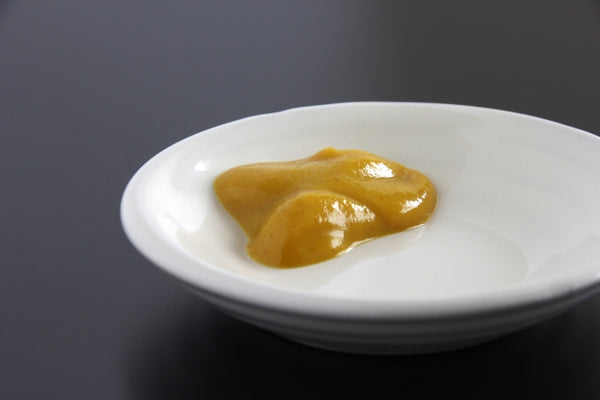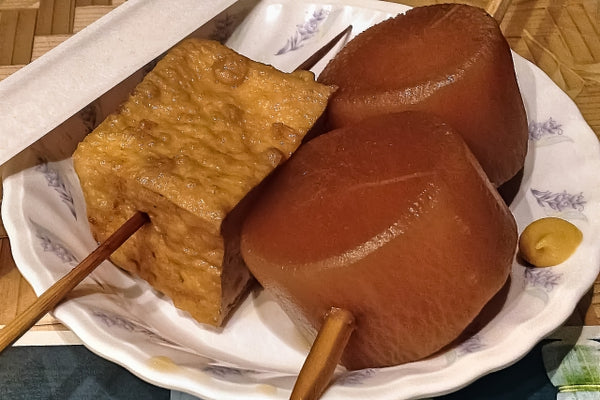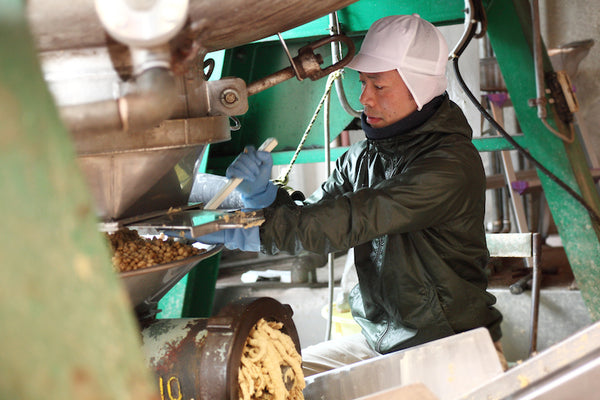Types of Japanese Mustard: Karashi vs. Jigarashi

Karashi
Karashi is a well-known variety of Japanese mustard, boasting a bright yellow color and spicy kick that produces the same nasal sting as horseradish or wasabi. As its vibrant flavor pairs well with fatty meats, it is a popular accompaniment to rich dishes such as tonkatsu (fried pork cutlet), gyoza (dumplings), and kakuni (braised pork belly). Compared to Western mustard, which is usually mixed with vinegar for a milder taste, karashi is much more potent and should be consumed in small quantities.

To make karashi, mustard seeds from the Brassica juncea plant are used. The process typically involves removing the seeds' oil content to prevent them from turning into a paste-like consistency when ground, similar to peanut butter, rather than a fine powder. The resulting powder can be sold as is, ready to be hydrated at home, or pre-mixed into a paste and packaged in tubes.

Jigarashi
In contrast, jigarashi is a regional variation of Japanese mustard that originated in Fukui prefecture. Similar to karashi, jigarashi is also made using mustard seeds from the Brassica juncea plant. However, unlike traditional karashi, jigarashi uses the entire mustard seed including the shell and oil, resulting in a more complex flavor profile. Producers in Fukui use centuries-old, traditional techniques from the Meiji era to grind the mustard seeds into a coarse powder without creating a paste, which preserves the full flavor of the mustard seeds. The result is a mustard paste that's sweeter and more aromatic than karashi.
Jigarashi is a prized local specialty that can be used in any application where karashi is traditionally used. It's also an excellent addition to vinegar-based dressings and Western meat dishes. Surprisingly, it's even used as a substitute for wasabi at sushi restaurants throughout the prefecture.
Try our Organic Karashi (Spicy Japanese Mustard) to add a little spice and heat to your dishes.
About the author:

Britney Budiman
Britney Budiman (@booritney) is a writer, minimalist, aspiring effective altruist, and runner-in-progress with a penchant for saying “yes.” Previously, she has worked in Cambodia at a traditional arts NGO, in Brazil as a social sciences researcher, and in San Francisco at a housing start-up. She currently lives in the countryside of Kagoshima, Japan, where she teaches English. Her favorite thing in the world is good conversation.





2 コメント
Thank you for your question! Wagarashi is made mainly from Asian mustard which has strong flavors and pungency. Karashi is a blend of wagarashi and yellow mustard and has a more mellow flavor.
Is wagarashi the same as kirashi?